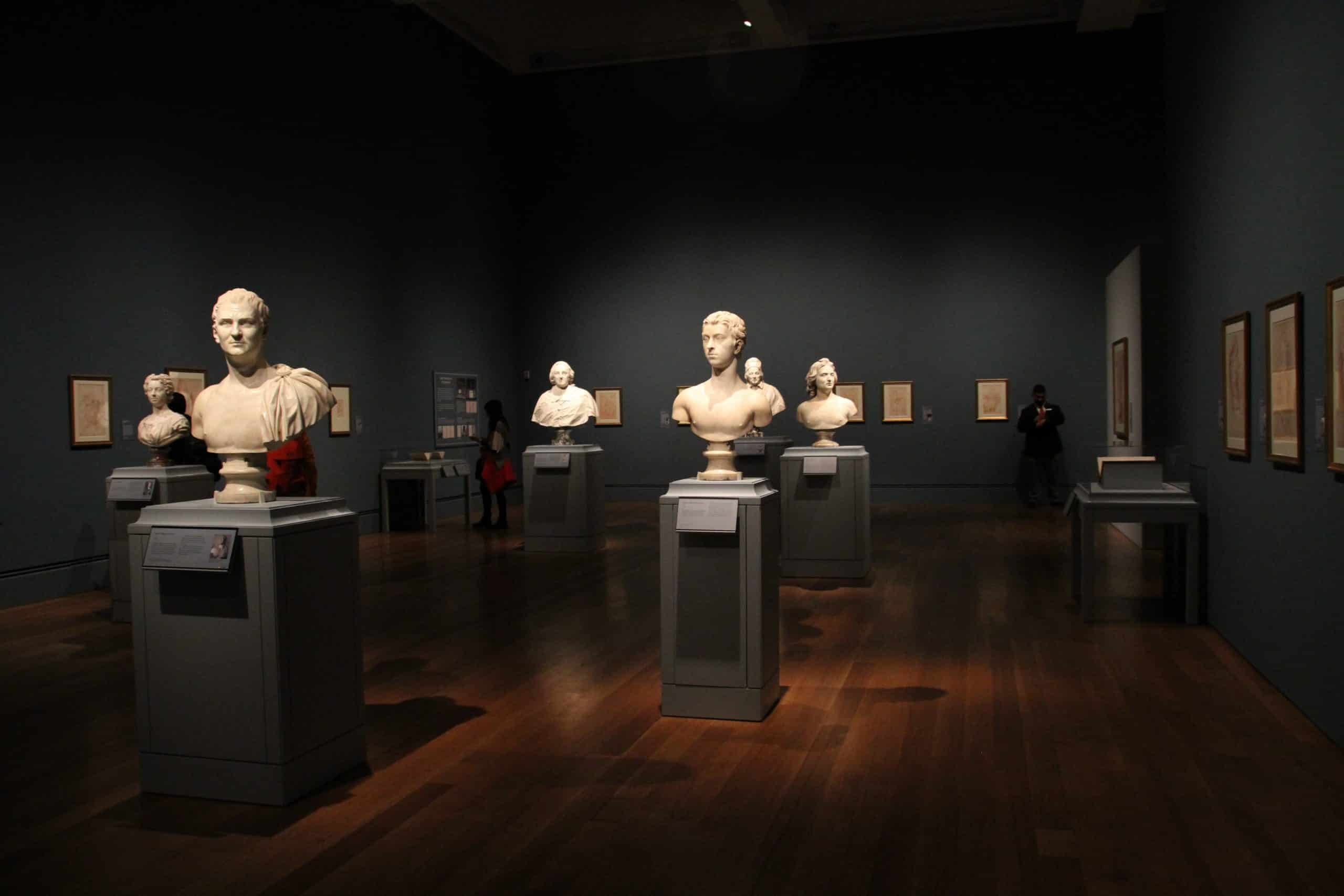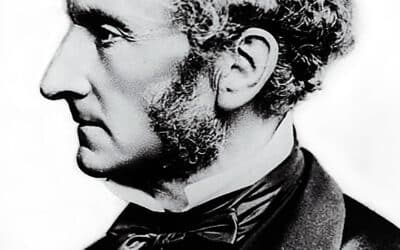There has been a lot of discussion and some action on the question whether statues portraying or representing men currently regarded as scoundrels by self-styled “good people” should be permitted to stand. On its face, such a view would seem to imply that many of the public squares and buildings of the great cities of the world must be razed, which strikes me as a reductio ad absurdum. Pick any leader you like: Churchill, Truman, De Gaulle, in any country, at any time, and look closely enough at his record and you will find dubious decisions made with deplorable consequences. The leaders who saved the world from the Nazis may be considered heroes today, but that does not imply that they were somehow flawless, as is nowhere more obvious than in what happened in the Soviet Union after World War II, when millions of Russians became the victims of a regime which had worked with the governments of the United Kingdom and the United States to halt Hitler’s mad quest to conquer the world.
Looking at more recent leaders, there are a good number of libraries, institutions, and buildings dedicated to men such as George H. W. Bush, George W. Bush, and Tony Blair, who together wrecked Iraq after concocting bogus pretexts for the invasion of a sovereign nation. For his part, Barack Obama attacked Libya before leaving it in shambles and dramatically increased the use of lethal drones to kill suspects abroad, including U.S. citizen persons of color who were executed without indictment or trial. Obama also dropped bombs throughout his two-term presidency (an average of seventy-two per day in 2016), targeting seven different countries across the Middle East and Africa. The military policies of each of these men have caused untold human misery, yet buildings and foundations continue to be named after them.
Those who wish to raze statues and rename buildings are for some reason not talking about their contemporaries, and the idea of prosecuting men such as Bush, Blair and Obama at the International Criminal Court (ICC) for crimes against humanity does not seem to cross their minds. Indeed, we find celebrities such as Ellen Degeneres and former first lady Michelle Obama entirely willing to overlook the war crimes of their buddy George W. Bush. President Obama himself opted not to prosecute those responsible for the Bush administration’s widely decried torture of human beings at Abu Ghraib, Baghram, and Guantánamo Bay prisons, among other places. Obama claimed, “That’s not who we are,” but effectively left torture as an option on the table for other administrations, including his own. He also “solved” the problem of the extended detention and mistreatment of terror suspects never charged with crimes by defining them as guilty until proven innocent and incinerating them with missiles launched from drones.
Remarkably, despite the horrors perpetrated under their watch, the esteemed opinions of George W. Bush, Tony Blair, and Barack Obama continue to be sought out. As far as I can tell, many people are entirely ignorant of the foreign policy record of Barack Obama, whose reputation seems to have received a big boost by the brash and boisterous demeanor of his successor. Mention Libya to a fan of Obama, and you are likely to receive a puzzled look in response. It was not, of course, Obama’s intention to catalyze a resurgence of black African slave markets in Libya through his ousting of Moammar Gaddafi in 2011, but that was nonetheless one of the consequences. When it comes to relatively mild-mannered men such as George W. Bush and Barack Obama, the prevailing prioritization of intentions over consequences translates smoothly into a willingness to forgive the perpetrators of catastrophic campaigns of mass homicide along the lines of the tried-and-true just war line: They meant to do good. So powerfully does the assumption of good intentions among compatriots hold sway over people that even Henry Kissinger, despite his role in perpetrating and perpetuating the Vietnam debacle, which resulted in millions of deaths, has managed somehow to continue to be revered, at least in some circles.
The same charitable interpretation is not, however, extended to the men whose effigies have been damaged or destroyed all over the United States in something of a mad frenzy to decry them as evil, while highlighting the protesters’ goodness by contrast—if only to themselves. Dozens of statues and monuments have been vandalized—spanning the time period from Christopher Colombus to Ronald Reagan—but the “cancel culture” crowd has focused especially on what have been interpreted to be the racist overtones of effigies of Confederate soldiers and officers from the Civil War, as a result of which slavery was finally abolished. As educated people know, the Civil War did not commence as a simple one-issue battle over whether slavery should be permitted, any more than the United States entered into the mêlée of World War II “in order to save the Jews.” (What went on at the concentration camps was discovered upon, not before, the liberation.) At the end of a conflict, when history is written by the victors, moral motivations are invariably emphasized over what were originally political reasons for taking up arms. In the case of the Civil War, economic objectives among secessionists and federalists, including President Abraham Lincoln, were what gave rise to the war. Nonetheless, the abolition of slavery is naturally viewed as a felicitous consequence of the loss of the war by the Confederate army.
I am not interested in debating the virtues and vices of the many men throughout history who held slaves, as did some of the founding fathers of the United States, but would like to suggest, rather, that calls for the destruction of statues and the metaphorical burning of texts, better known as censorship, are misguided. This is, first, because such works have always and everywhere been the result of intelligent human beings’ acts of creation. It is true that nearly no one knows anymore who created the vast majority of public squares and statues. In the case of structures erected in ancient and medieval times, it is plausible that they were produced under duress by persons enslaved, because that’s how things were done back then. But the fact that the Roman Colosseum was built with the blood, sweat and tears of slaves made to realize the vision of non-slaves (Emperors Vespasian and Titus) does not imply that the structure should be erased from the face of the earth. To do so would accomplish nothing beyond depriving the world of memory traces of centuries past.
What we know about the more recent structures being defaced is that their production involved the industry and creativity of artists who were not slaves. There is a reasonable sense in which the statues can be viewed as works of art rather than effigies to bad men who no longer exist or insane calls to make slavery legal again. The idea that destroying such works will somehow diminish racism rests on the entirely false view according to which an artifact has a single, definitive, immutable interpretation. This is a profound misunderstanding of the nature of art. A statue of a Confederate soldier can be as much a tribute to all soldiers who fight and lose as it is to any individual racist’s beliefs. The concept of “invincible ignorance”, that at least half of all soldiers are fighting for an unjust cause (which follows logically from the fact that at most one side can be right—though both can be wrong), has throughout history been invoked to protect the soldiers on the losing side who followed what to all appearances were legal orders in promoting a mistaken leader’s cause. Again, a fine-grained study of history reveals that many men who fought on the side of the Confederacy were not doing so out of hatred for African Americans and were not in fact slave owners. Moreover, there were racists among the Union army’s ranks, and some among them did own slaves. It is true that, had the Confederate army prevailed, then slavery would likely have lasted longer in North America than it did. It is also true, however, that many other countries managed to abolish slavery without such a bloody and protracted war.
When we allow one person or small group’s interpretation alone, the least charitable of all possible interpretations, to dictate the meaning of a work, we are allowing them to delimit reality precisely in the manner of a tyrant. Works of art, like written texts, are by their very nature subject to multiple interpretations, and their meaning to an individual comes finally to be a function of that person’s background beliefs. Non-didactic artists and writers may not even know what “message” they were attempting to convey when they created their works, and they often discover meanings only after the fact, while considering the object from the perspective of a reader/interpreter. The fact that slavery was widespread throughout the ancient world does not imply that all ancient texts should be erased and artifacts destroyed. The fact that Aristotle may have believed that women were only partial persons does not imply that we must interpret his every word as expressive of that idea. Nor should the fact that a few pseudo-intellectual Nazis took the work of philosopher Friedrich Nietzsche as supportive of their ridiculous Weltanschauung lead us to burn all of Nietzsche’s books.
In a truly liberal society, such as that championed by nineteenth-century English philosopher John Stuart Mill, according to whom the “marketplace of ideas” is a cornerstone of democracy, the possibility of learning and correcting the errors in our ways mandates that we remain receptive to other people’s points of view. Even if we find the views of others despicable, this does not imply that they should be effaced. Practically speaking, it would be highly imprudent to prevent everyone who disagrees from speaking, because then we would never know who our true enemies are. But the primary reason for opposing censorship is that no censor has a monopoly on the truth. We are all wallowing in beliefs forged through a random assortment of arbitrary interactions, processing information as we encounter it, accepting some claims while rejecting others, based, ultimately, on how they cohere with our current worldview.
In Ray Bradbury’s classic novel of speculative fiction, Fahrenheit 451, the government is being run by leaders who believe that they are right and anyone who disagrees is wrong, and that books which promote other, “dangerous” world views must be destroyed in order to prevent poisoning people’s minds. The most famous works of dystopic fiction, including George Orwell’s 1984 and Aldous Huxley’s Brave New World, also caution against the perils of permitting small committees of fallible people to delimit the contours of reality as they please. Reading such works, in which censorship is a key component of governance, it may seem obvious that the worlds depicted are anti-humanist. These are worlds where intelligent persons are treated as criminals for having ideas which differ from what has been deemed the proper way of viewing things. Despite the popularity of such works of fiction in recent times, an ever-increasing number of people have come to believe that we should topple the statues of “bad men” and remove classic works of literature from school curricula. The next step down a slippery slope should have been predicted when all of this began: some people should not be permitted to speak in the public square, for their words may be dangerous.
The recent removal of President Donald Trump from both Twitter and Facebook, on the grounds that he allegedly used the platforms to foment violence, specifically, the raucous protest at the U.S. Capitol on January 6, 2021, has been applauded by self-proclaimed “liberals” all over the planet, despite the fact that Trump explicitly dissociated himself from those who wreaked the violence, and publicly denounced it as wrong. Note that no one held Democratic party leaders or candidates responsible for the many violent protests and widespread looting in cities all over the United States throughout 2020. Yet Michelle Obama, who in befriending George W. Bush let war crime bygones be bygones, wrote a two-page letter exhorting the Big Tech social media giants to permanently bar “infantile” Trump from sharing his words with the world, claiming that he was responsible for what happened on January 6. Her sentiments were echoed and amplified throughout the mainstream media, with many people parroting the refrain that it is the prerogative of private companies to conduct their businesses as they please, and offering a pithy response to those who disagree: “If you don’t like it, leave.”
It is true that the Big Tech companies are not bound by the First Amendment to the United States Constitution, which protects the free speech of citizens. Twitter and Facebook have been censoring, “curating” content, and banning users for years now. In recent times, and most aggressively during the 2020 election cycle, they have adopted the measure of attaching “child safety” warnings to posts, alerting users that content is dubious according to the company’s fact checkers. What happened in this case, however, was startling because one of the alternatives to Twitter, Parler, where people banned from Twitter or annoyed by their censorship or “child safety” warnings sometimes migrated, was removed nearly immediately from the Google , Amazon and Apple app stores, effectively suppressing the speech of everyone who did not like Twitter and left (as they had been told to do). The symbiosis between the government and Big Tech became undeniable when incoming President Biden tapped Facebook executives to be a part of his cabinet, and one hopes that lawsuits charging monopolization will put an end to the squelching of alternative views and ensure that history, though continuously rewritten by the victors, will not be entirely erased.
Donald Trump’s tweets were certainly a bizarre phenomenon in U.S. political history and surely one of the reasons for his polarizing presence the world over, with people revering and reviling him in close to equal numbers—at least judging by the outcome of the 2020 presidential election. For Big Tech to effectively uphold Hillary Clinton’s “deplorable” trope in favoring one half of the country over the other can only exacerbate the deep divisions already on display. Michelle Obama is entitled to her opinion, but so are the more than 74 million people who voted for Trump in the 2020 election. Donald Trump was the president of the United States for four years, and his often emotive Tweets are historical texts, for better or for worse, which should be accessible to all.
Unfortunately, the so-called liberal people who demand and applaud the silencing of Trump do not appear to understand what they are advocating. They do not appreciate that humankind has progressed over millennia as a result of a lengthy experiment in testing out various ways of looking at the world. To claim, for example, that the works of Mark Twain should be censored because they contain the word ‘nigger’ is to forget that societies have changed in part as a result of people’s having read such books. It is in fact arguable that to remove a statue of Robert E. Lee would do no more than to hasten the process of forgetting how wrong human beings were, for most of history, in upholding slavery, not only in the United States, but all over the world. Likewise, from an antiwar perspective, every monument to World War I (and they exist in many different countries) stands as a testament to the sheer insanity of sending millions of young men to their deaths for essentially nothing. Again, one look at the Vietnam Veterans Memorial in Washington, D.C., where the names of the many men who died in a misguided war are inscribed, serves as a reminder not to make the same mistake all over again.
To oppose the razing of historical structures on the grounds that they were commissioned by or represent “bad” people is not to deny that communities have the right to decide how to decorate their public spaces. Sometimes sculptures in parks and squares are removed or replaced, but to pretend that unilateral acts of vandalism will reduce racial tensions is delusive in the extreme. It is both puerile and false to assume that a single interpretation exhausts the value of any work of art or text. The truth is not a function of whatever arbitrary group of people happen to have acceded the corridors of power or whatever angry protesters have taken it upon themselves to wreck what they happen not to like, based on their own, necessarily limited, interpretations. Rational adults are aware that all people are fallible and that no one can pass strict “purity” tests.
Should the Roman Colosseum, which was not only built by slaves but also used as an arena for gladiator battles between slaves forced to fight to the death for the entertainment of the upper classes, be pulverized, and the land on which it stands be turned into a parking lot? That is the direction in which this childish movement is going. To cancel culture is to cancel the extant evidence of the process human beings have gone through to get where they are today. The Nazis attempted such a cancel culture project, denouncing modern forms of art as “degenerate” and permitting only aesthetic views in conformity with their delusive project of furthering the Aryan race. Some may take offense at my comparison of these two cases, but they differ only in details, not in approach. Both define cultural history as having effectively ended with the current view of those who would erase the past and dictate all that may exist in the future. Both are obtuse, shortsighted and small-minded.
Despite their foibles and deficiencies and myopia and biases, some human beings nonetheless make the effort to contribute their intellectual energy to produce new works and texts for our consideration. We need not and will not like all of them, but to say that we should destroy them is tantamount to the tyrant’s decree “Off with their heads!” in response to the annoying dissenters who may emerge among his ranks. The censors tomorrow may not agree with your interpretations and may decide that you need to be canceled at their caprice. The grandest irony of all is that if such a view had prevailed in the pre-abolition United States, with the suppression of the texts and speech of all those who disagreed with the laws of the land at that time, then slavery would never have been abolished.








